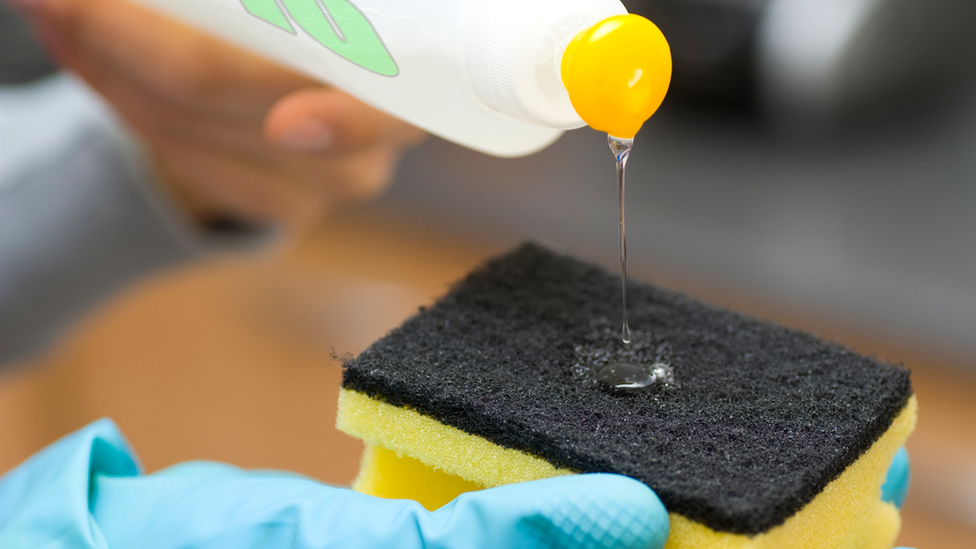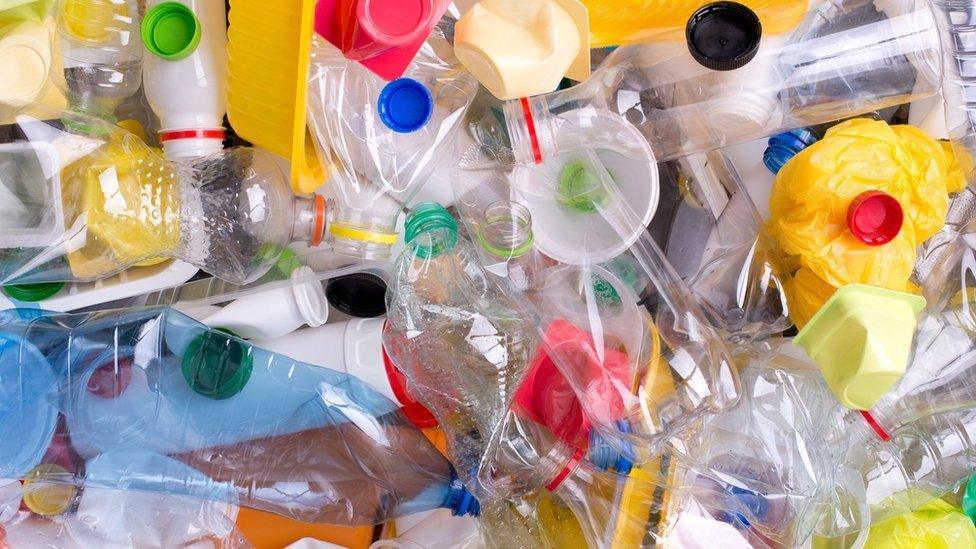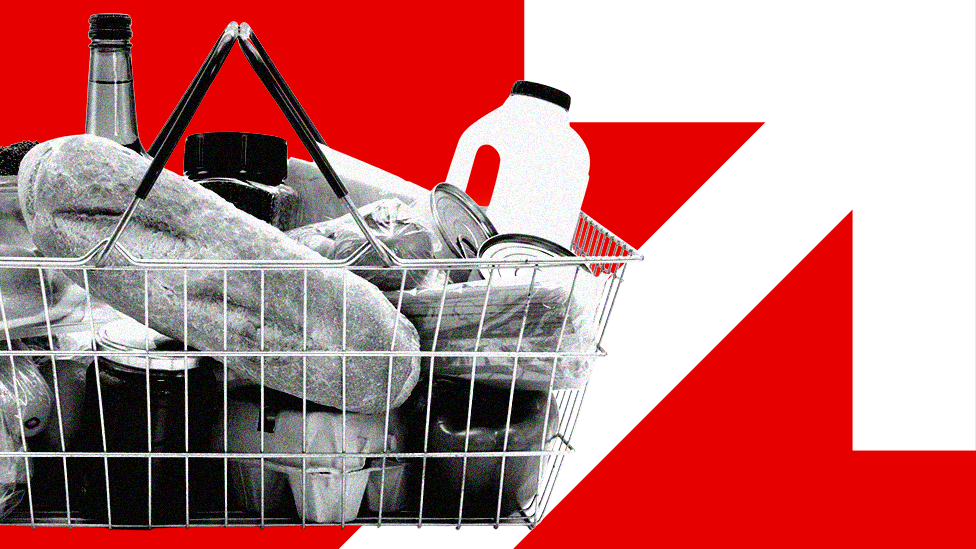Green claims on household basics investigated
- Published

"Green" claims made in advertising for household basics, such as washing-up liquid, are to be scrutinised to see if they are misleading.
The Competition and Markets Authority (CMA) says, external it is concerned consumers are "paying a premium for products that aren't what they seem".
It will examine the accuracy of environmental claims on goods such as cleaning products and toiletries.
CMA boss Sarah Cardell says she is concerned companies are "greenwashing".
This is when a firm exaggerates its environmental credentials for marketing purposes.
"As more people than ever try to do their bit to help protect the environment, we're concerned many shoppers are being misled and potentially even paying a premium for products that aren't what they seem, especially at a time when the cost of living continues to rise," Ms Cardell said.
She said it would be looking at both big and small firms' products to see if the environmental claims they made were true.
The investigation will also look into the accuracy of green claims made about food and drink. The CMA said last year shoppers spent £130bn on household essentials.
It said "a significant number" of household products are marketed as green or environmentally friendly, including almost all dishwashing items and toilet products.
The watchdog said it was worried about a number of areas including products that used "vague and broad" statements, such as claiming packaging is sustainable or "better for the environment", with no evidence.
It will also look at claims over the use of recycled or natural materials in products, as well as whether entire ranges are being incorrectly branded as "sustainable".
In July last year, the CMA began examining some clothing and footwear collections by fashion retailers over green claims.
They include ASOS's Responsible edit, Boohoo's Ready for the Future range and George for Good, the clothes brand sold by Asda.
The watchdog said the criteria companies used to include clothing in so-called sustainable collections might be lower than shoppers might reasonably expect.
"For example, some products may contain as little as 20% recycled fabric," it said.
The CMA began examining the way that companies used "eco-friendly" descriptions and labels to promote goods and services in November 2020.
It found that more and more shoppers wanted to help the environment through buying what they thought were "green" products. But the CMA was concerned it could lead some businesses "to make misleading, vague or false claims".
Related topics
- Published20 January 2023

- Published15 November 2023

- Published29 July 2022
